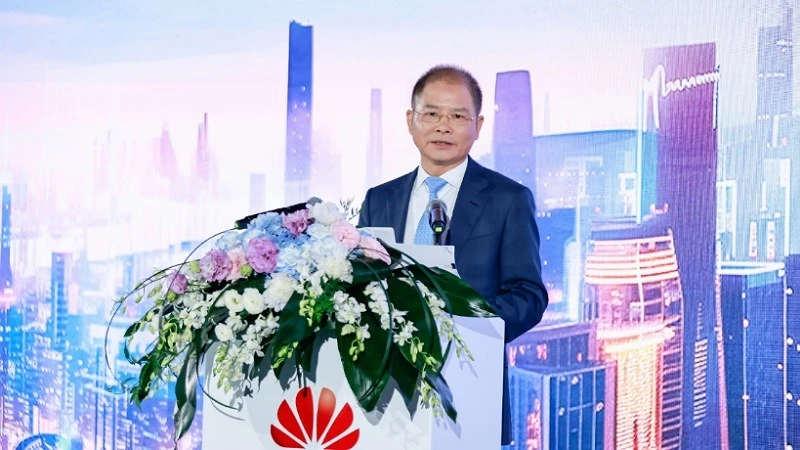
By News Agency , Agency
At the 21st Huawei Analyst Summit, Huawei's rotating chairman, Eric Xu, urged developers to collaborate on the development of native apps for the company's mobile operating system HarmonyOS.
"We call on all app developers and owners in China to join our HarmonyOS-native app ecosystem as soon as possible, and work together to deliver a better experience to consumers," said Xu.
HarmonyOS is the company's next-generation operating system that can run on a wide range of smart devices, e.g. smartphones, wearables, tablet computers and smart TVs. By the end of 2023, HarmonyOS had been deployed on more than 800 million devices.
According to Counterpoint Research, Harmony OS reached 4% of the global market share and exceeded 16% market share in China in the fourth quarter of 2023.
Huawei has made substantial progress in developing the HarmonyOS ecosystem, with more than 4,000 of the targeted 5,000 apps already in the process of being ported to the new operating system. The company aims to eventually have as many as a million apps configured for its ecosystem, Xu introduced.
Xu introduced that HarmonyOS has a novel architecture. From the start, this IoT-inspired OS was designed to support all types of devices, from IoT devices and mobile devices to home devices, laptops, and desktop computers. One system for all devices.
“In the past, our focus was mostly on adapting HarmonyOS for all sorts of devices. But for apps, they were still working within the Android ecosystem,“ Xu explained. “In the China market, Huawei smartphone users spend 99% of their time on about 5,000 apps. So we decided to spend 2024 porting these apps over to HarmonyOS first in our drive to truly unify the OS and the app ecosystem,” said Xu.
“In 2024, one of our key objectives is to build up the HarmonyOS-native app ecosystem,” he emphasized. “This is a massive undertaking, but we have broad support in the industry and from many app developers. Once we have these first 5,000 Android apps – and thousands of other apps – up and running on HarmonyOS, we will have a real HarmonyOS: a third mobile operating system for the world, in addition to Apple iOS and Google Android.”
While Huawei's initial focus is on the Chinese market, Xu said that the company will gradually expand HarmonyOS to other countries using a country-by-country approach.
Huawei has already invested heavily in cultivating talent for the HarmonyOS ecosystem. More than 380,000 developers have obtained HarmonyOS certification, and the number of industry-university partnership programs on HarmonyOS exceeds 150. In 2023, more than 135 universities in China had classes teaching HarmonyOS, says the company’s Annual Report of year 2023 made public end of March.
In August 2023, Huawei's HongMeng (Harmony) Kernel was awarded the industry's first Evaluation Assurance Level 6 Augmented (EAL6+) certificate as part of Common Criteria for Information Technology Security Evaluation (CC), the highest security level available in the field of general-purpose operating system (OS) kernels, being world's first smart device manufacturer to receive the certification in this particular domain.
Xu admits that building out the HarmonyOS ecosystem is a very challenging task indeed. “As you may know, developing HarmonyOS was not previously part of our strategy,” he said, “Regardless, now that we have taken on this task, we will strive to do it well.”

No comments:
Post a Comment